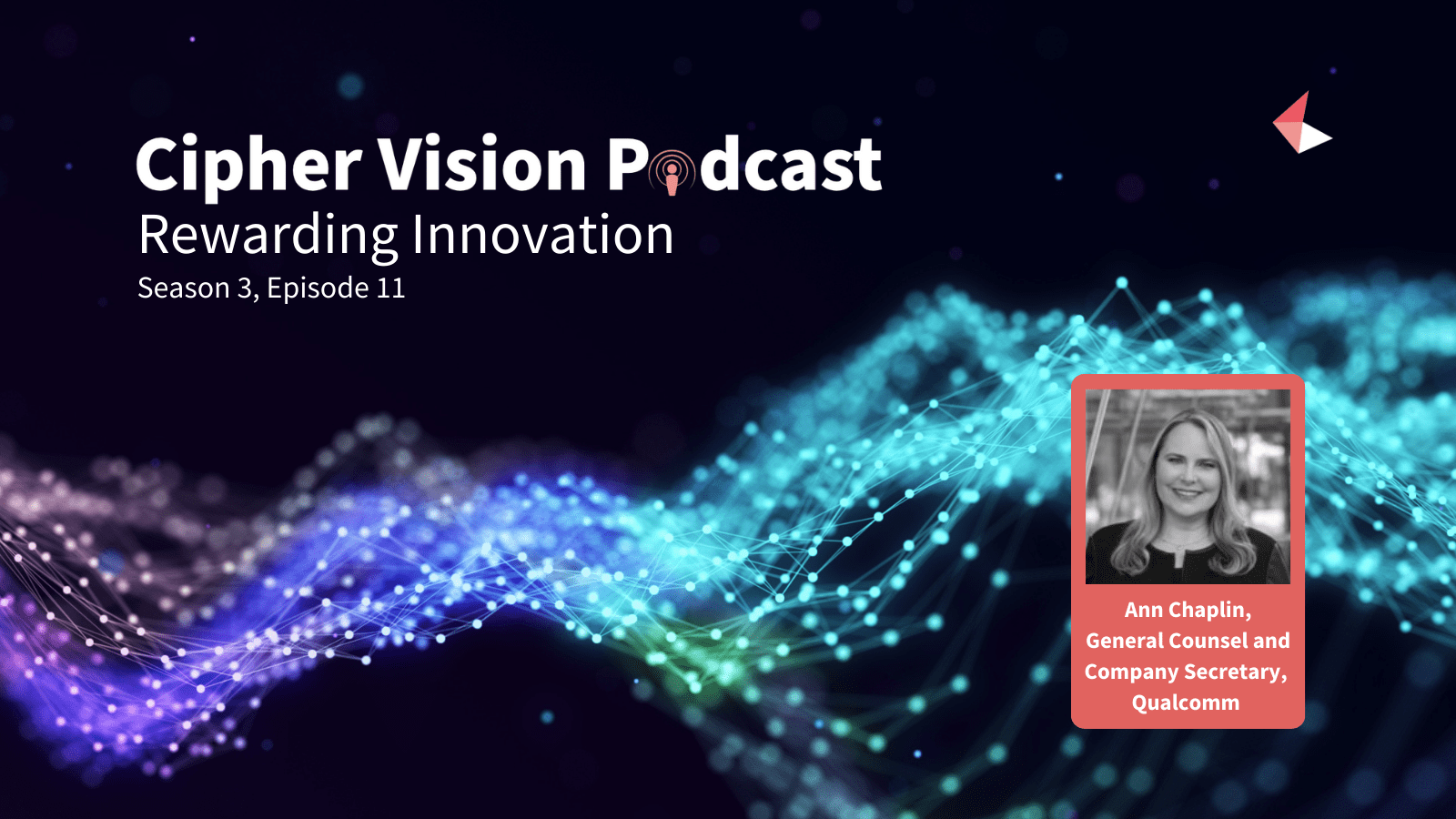Rewarding Innovation

Introduction
Episode 11 in Season 3 of the Cipher Vision Podcast series features Ann Chaplin, General Counsel and Company Secretary, Qualcomm.
Ann joined us to discuss how strong IP rights foster innovation globally, stressing the need for balanced regulation and increased diversity in inventors.
She chats to the hosts of the Cipher Vision podcast, who are:
- Francesca Levoir, Head of Marketing, LexisNexis Cipher
- Nigel Swycher, CEO, LexisNexis Cipher
Conversation Highlights
On the lack of diversity in IP
Right now, only 13% of inventors listed on US patents are women. While Black, Latinx and Indigenous people account for less than 8% of all US inventors.
Researchers estimate that in the US alone, increasing participation in invention and patenting by underrepresented groups would increase annual GDP by up to a trillion dollars.
The steps Qualcomm is taking to aid diversity
In 2019, we led the establishment of a group called Invent Together, which is a coalition of companies, universities and other like-minded organizations and individuals to raise awareness of the gap in patent applicants and patentees.
We advocate for more research on historical exclusion from patenting. And for policies and programmes aimed at making patent-heavy STEM fields more inclusive.
For instance, in the United States we advocated for the passage of a bill called the Inventor Diversity for Economic Advancement Act, which would direct the US Patent and Trademark Office to collect inventors’ demographic data on a voluntary basis and make it available in the aggregate for research.
Qualcomm, through Invent Together created a free resource that’s available to anyone online. Called The Inventors Patent Academy, it helps inventors to understand the patenting process and ready them for seeking patent protection on their own. It also was specifically written to address issues that may be faced by underrepresented groups.
Why do you think we need strong IP rights?
I think strong IP rights are essential to innovation throughout the globe, for people to make the investment.
We have decades of foundational leadership in wireless and computing technologies. And in lots of ways, we act as the R&D Centre for the industry on all those innovations. Because we’ve made consistent heavy investments in fundamental research that others simply haven’t matched or have been able to sustain.
Essential to our ability to continue to do that foundational research and development is the licensing revenue. And to continue this progress that we then bring to the entire industry.
We are generally not supportive of legislative or regulatory action, that devalues patents, would weaken the patent systems integrity, or that undermines the rule of law more generally.
What does the future hold?
I think that it’s important for us to realize and to let people know that the current system works.
IP licensing is really driven by market forces that ensure that standard essential owners are fairly compensated for their R&D investments while providing scalable access to technology that broadly enables the ecosystem.
We support further transparency in doing that, but we do worry about heavy-handed government-driven approaches that are divorced from market realities.
Ann’s Key Takeaway
In the context of economic value, industry, competitiveness, national security, sustainability, consumer choice, and so much more, we must uphold the global standard ecosystem that’s incentivized and reinforced by a stable framework of global patent policies that consistently protect IP rights.
The benefits of expanding the pool of inventors are clear as well. More diverse and inventor communities will result in more diverse problem-solving.
Nigel’s Key Takeaway
There are those who look at the standard essential patent landscape and wish for greater transparency and less friction.
Ann makes the point that there will always be disputes between those who grapple with the delta between price and value. But that’s not evidence of the patent system is broken, and regulators should be cautious before they intervene.



